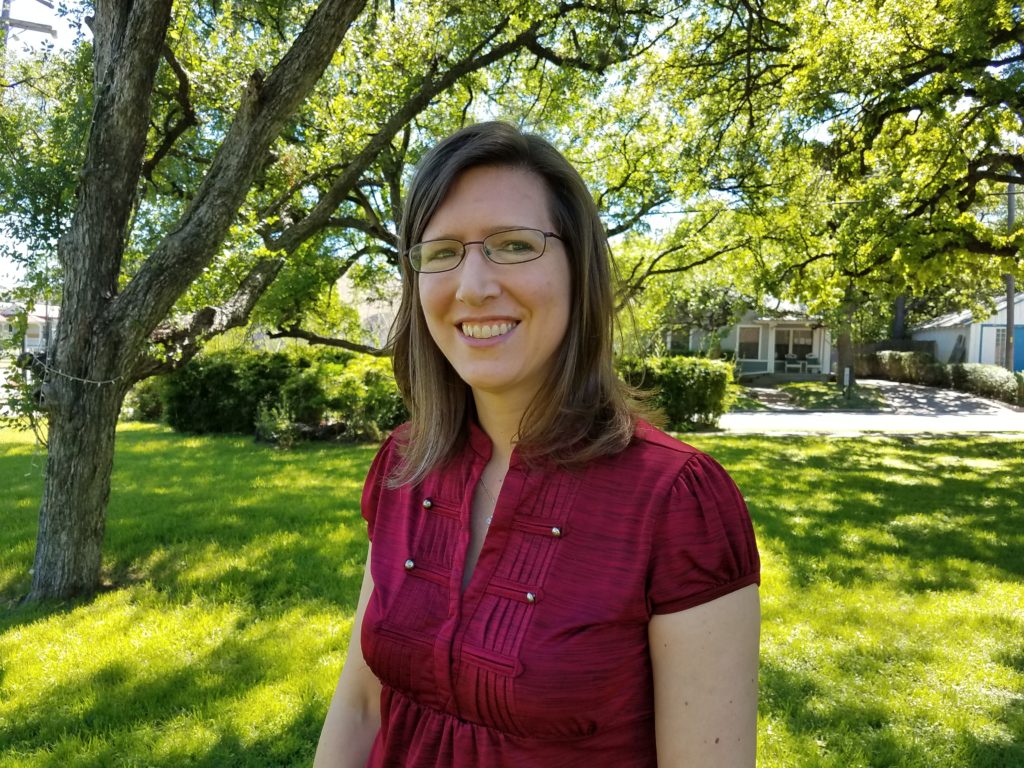We caught up with the program director of Cine Las Americas ahead of the international film festival’s 20th year anniversary.
By Emma Whalen, Photo by Rebecca Morelo Jackson

On a sunny Monday afternoon in early April, Jean Lauer is at a movie theater. It’s exactly one month until opening day of the Cine Las Americas International Film Festival, and Lauer has added to her growing slate of responsibilities leading the film festival by reaching out to theaters in Austin like this one, Violet Crown, to form partnerships for future screenings of films that didn’t make the festival lineup this year. This year marks the 20th anniversary of the Cine Las Americas International Film Festival, and the growing support and interest for the event is supplying Lauer, the festival’s program director, with more submissions than she can screen in the allotted four days. This does not, however, mean she is satisfied.
“I would like more people to be as passionate about these movies as I am,” Lauer says. “I am going to always see that as a challenge. Our staff, everyone involved and I want to see every single screening filled. So, until that happens, that’s going to be a challenge.”
The festival, which includes work from filmmakers in Latin America, Spain and Portugal, began long before Lauer became program director in 2014, but she says its mission is just as important today.
In an attempt to do Latin American filmmaking justice, Lauer and her team seek out accurate and informative documentaries about issues in Latin America and among indigenous people, as well as films of varying genres.
“I love when people get to see a comedy from another culture as much as I love when they get to see a documentary about women feeding people on the train as it goes through Mexico,” Lauer says. “Both of those things are very important, contemporary art forms with stories to tell.”
Lauer’s interest in all facets of Latin America first took root in Lansing, Mich. While most people don’t associate the state of Michigan with Latin American culture, Lauer says the diverse people she grew up first sparked her curiosity.
“I grew up in diverse schools with friends who were immigrants from many places, not just Latin America. To me, that was something that was normal as a child, to know people and to be curious about people from other places,” she says.
This interest, though, was not always at the forefront of her mind. Lauer studied chemistry as an undergraduate, but after signing up for so many Spanish classes, the story goes that she “accidentally” added a Spanish major. It was not until Lauer moved to Arizona to earn a master’s degree in Spanish that she realized how much her upbringing blinded her to the often harsh realities Latinos face in America.
“When I moved to Arizona, it was a very big culture shock to me. I moved to a place that was openly racist and openly hateful towards people of color, in general, but especially [toward]Mexican and Mexican-American people, and that was really distressing to me,” Lauer says. “I didn’t want to think that that was the America I lived in.”
Continuing her in-depth studies of Latin America led Lauer to the University of Texas, where she wrote her dissertation and studied the Benson collection, the largest library collection of Latin American literature in the U.S. Studying film at UT, Lauer eventually became the ideal candidate for a volunteer position with a film festival in Mexico. For two summers, she volunteered by assisting on the festival’s international pitching market. Her prowess for cultivating connections and refined organizational skills led to Lauer’s hiring as program director of Cine Las Americas in 2014. With all of her accolades and experience, Lauer says she is most proud of is her team.
“We’ve been through some pretty tough financial times. We’ve been through some change in leadership, which can always be stressful in a nonprofit organization,” she confides. “Our 20th year is a testament to people believing in this mission, putting their time in, telling their friends about it, helping get the word out about what we do and really being committed to the project and each other.”
Lauer, now in her third year as program director, believes now more than ever that her work is an important step in improving the current political climate.
“My interest is really as a citizen of a very wealthy nation, with all the privileges that [citizenry]has afforded me,” Lauer says. “Knowing that that [privilege]is not taken for granted and that our mission, as a nation of immigrants, [is to be]a nation of inclusion and diversity, that’s the nation I want to be toward all of our fellow neighbors and all our immigrants.”

